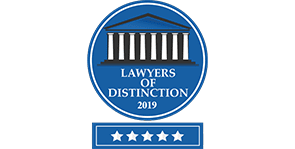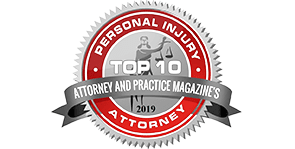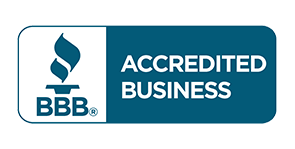When a semi-truck collides with a passenger car, the consequences are rarely “minor.” Between federal regulations, multiple insurers, and evidence that can disappear in days, truck crashes are fundamentally different from ordinary car accidents. Here’s a clear look at what a truck accident lawyer actually does and how that work protects your health, your timeline, and the value of your claim.
Why Truck Crashes Are More Complex
Commercial trucking cases involve more than just two drivers. You’re often dealing with the truck driver, the motor carrier (employer), a broker or shipper, the company that loaded the trailer, a maintenance contractor, and sometimes a parts manufacturer. Each may carry separate insurance policies and each has records that matter driver qualification files, hours-of-service logs, dispatch notes, maintenance histories, GPS/ELD (electronic logging device) data, and the truck’s “black box” (ECM). Coordinating all of that is a full-time job, and it’s the first reason hiring a dedicated truck accident lawyer pays off.
The First 72 Hours: Preserving Evidence
One of the most important steps your lawyer takes is sending a spoliation (preservation) letter to the trucking company and its insurer. This puts them on notice to keep critical evidence: dashcam video, ECM downloads, ELD logs, post-trip inspection reports, repair tickets, and even the driver’s cell-phone records. Your attorney may also deploy an investigator to photograph the scene, identify surveillance cameras, locate witnesses, and ensure the vehicle isn’t altered before a neutral inspection happens. Preserving this technical evidence early can make or break liability later.
Investigation That Goes Beyond the Police Report
Police reports are a starting point, not the finish line. A truck accident lawyer will:
-
Download electronic data from the tractor and sometimes the trailer to capture speed, braking, throttle, and fault codes.
-
Inspect the rig with experts, checking brakes, tires, lighting, underride guards, and load securement.
-
Reconstruct the crash using skid marks, yaw patterns, crush damage, and roadway geometry.
-
Subpoena the paper trail—driver logs, dispatch instructions, bill of lading, weigh-station tickets, and hiring/training files—to spot fatigue, unrealistic delivery schedules, or poor supervision.
This deeper investigation can reveal systemic safety failures at the motor carrier level, not just a single driver mistake.
Finding Every Liable Party
Trucking companies and their insurers often point the finger elsewhere. Your lawyer’s job is to identify all accountable actors:
-
Driver negligence: fatigue, distraction, speeding, impairment, or improper lane changes.
-
Motor carrier negligence: unsafe hiring, inadequate training, pushing illegal hours, poor maintenance, or failing to discipline repeat offenders.
-
Broker/shipper liability: negligent selection of a carrier or unsafe loading practices.
-
Maintenance/parts: defective components or substandard service contributing to brake or tire failures.
Why this matters: the more accurately liability is mapped, the more sources of recovery are available to cover the full scope of your losses.
Calculating Full, Not Minimal, Damages
Insurers focus on immediate bills. A strong claim accounts for the entire impact:
-
Medical care: ER visits, surgery, rehab, medications, devices, and future treatment.
-
Income losses: missed work, diminished hours, or loss of earning capacity if you can’t return to the same job.
-
Non-economic harms: pain, mental distress, loss of enjoyment, and impact on family relationships.
-
Property losses and out-of-pocket costs: towing, rentals, home modifications, and mileage to appointments.
Your attorney coordinates with your doctors and may retain life-care planners or economists to substantiate future needs—especially crucial in high-impact truck cases.
Dealing With Insurance Companies (So You Don’t Have To)
From “friendly” adjuster calls to quick low offers, insurers move fast to limit exposure. Your lawyer:
-
Handles all communications and recorded statements.
-
Builds a demand package backed by medical records, bills, wage documentation, expert reports, and the liability evidence gathered.
-
Counters delay tactics—requesting needless authorizations, disputing causation, or misreading your medical chart—by pointing to the documented record.
Litigation: When Settlement Isn’t Enough
Many truck claims settle, but the best results come when the other side knows your lawyer is prepared to try the case. Litigation includes:
-
Filing the complaint within the statute of limitations.
-
Discovery: sworn depositions of the driver, safety director, dispatchers, loaders, and corporate representatives; targeted requests for documents and data.
-
Motions practice: compelling production, excluding unreliable defenses, and enforcing safety rules that apply to carriers.
-
Mediation and trial: negotiating from strength and, if needed, telling your story to a jury using clear visuals, timelines, and expert testimony.
Using Trucking Regulations to Prove Negligence
Trucking is governed by federal and state safety rules (hours-of-service limits, driver qualifications, vehicle inspection and maintenance, and more). Violations of these rules help establish the standard of care and can support negligence claims. An experienced truck accident lawyer knows how to connect those rules to the facts of your case.
What It Costs to Hire a Truck Accident Lawyer
Most reputable firms work on a contingency fee: you pay no attorney’s fee unless they recover money for you. Case costs (experts, filing fees, records) are typically advanced by the firm and reimbursed from the recovery. This levels the playing field against national carriers and insurers with deep resources.
What to Bring to Your First Call
Have these ready if you can (don’t worry if you can’t gather everything yet):
-
Police report number, crash photos/video, and the truck’s DOT/MC number if available.
-
Medical records or discharge papers, current providers, and a simple treatment timeline.
-
Proof of missed work or reduced hours; any letters from insurers.
-
Your own notes about pain, sleep, mobility, and how daily life has changed.
The Bottom Line
Truck cases reward speed, thoroughness, and a willingness to dig into the data. The right lawyer preserves key evidence, identifies every responsible party, documents the full scope of your losses, and pushes insurers to pay what the case is actually worth—not just what’s convenient for them.
Hurt in a truck crash in Riverside or the Inland Empire? Talk to Montgomery Steele Law today for a free, no-obligation consultation—no fee unless we win. Call (909) 312-2111 or visit montgomerysteele.com to get answers and a plan, fast.










